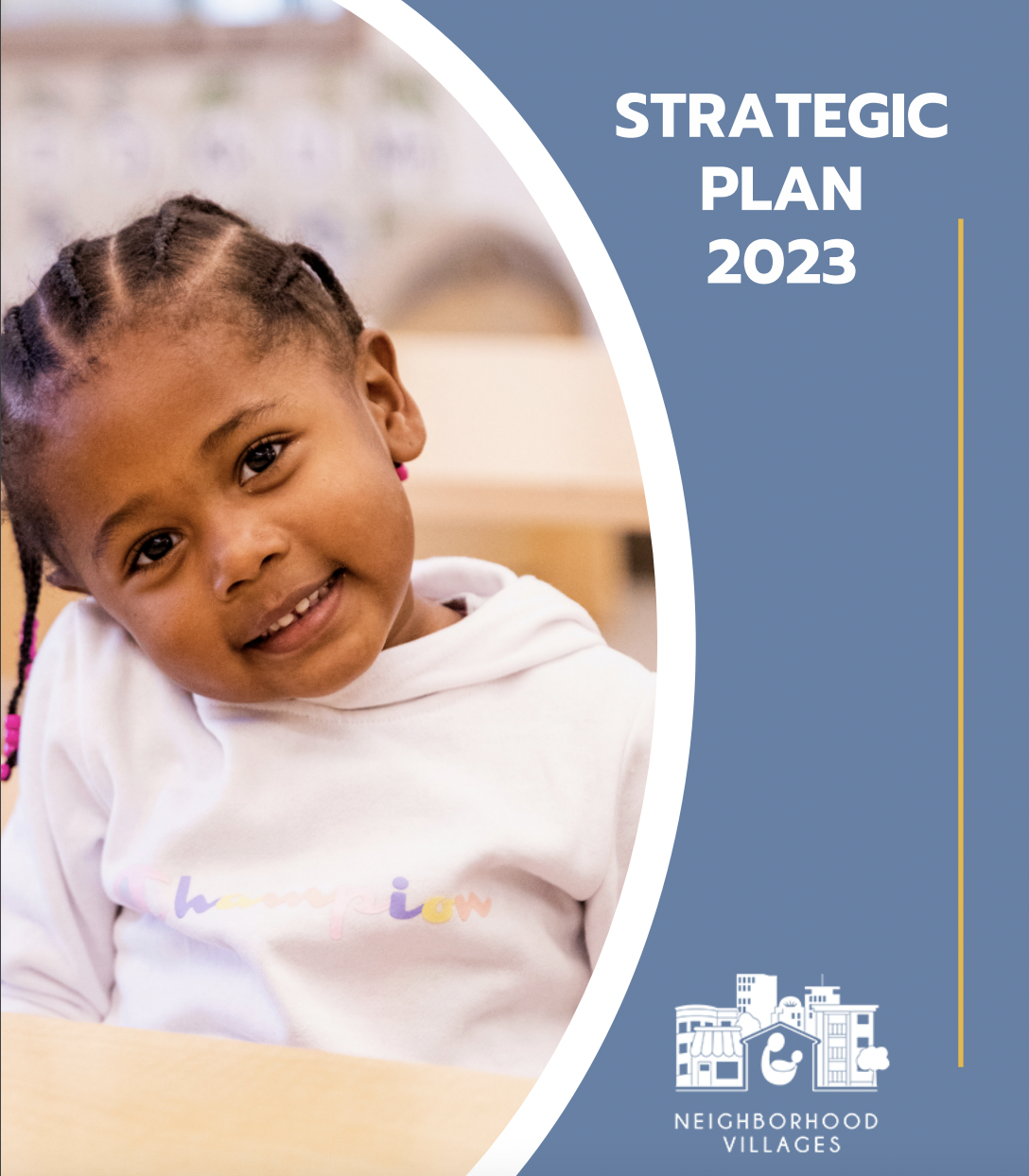
STRATEGIC PLAN 2023
Innovate. Scale. Advocate.
In this Strategic Plan, Neighborhood Villages establishes the following organizational priorities for the next three years:
Demonstrate that an equitable, accessible, and high-quality early childhood education delivery system is possible;
Embed equity throughout Neighborhood Villages’ work internally and externally; and
Ensure organizational capacity to achieve sustainability and lasting impact.
What We’re Solving
Despite its centrality to family prosperity and economic growth, in the United States, our early childhood education sector is broken. Why?
-
Unlike public K-12 education, which is a government-funded system, early childhood education receives no meaningful public investment. As a result, it's too expensive for families to afford. In states such as Massachusetts, which consistently ranks worst in the nation for family affordability, early childhood education tuition fees exceed the cost of in-state college and, often, home mortgages. The result? Families struggle to find the care solutions they need to work, and children are denied equal access to the high-quality early education they deserve.
-
Even with sky-high tuition rates, early childhood education providers struggle to pay the staff who educate and care for our youngest learners more than minimum wage. The early childhood education workforce is almost exclusively women and disproportionately women of color, and 1 in 6 educators live below the federal poverty line. Low wages are the root cause of the workforce shortage in the early childhood education sector; providers struggle to find and retain teachers, which in turn limits providers’ ability to enroll children and further reduces access for families. Tuition that families cannot afford and teacher salaries that do not provide a livable wage are indicators of a fundamentally broken sector that is failing children, families, and educators.
-
In addition to insufficient public funding, early childhood education lacks systems infrastructure and opportunities for cross-sector coordination amongst providers, government, and end-users (i.e., families). Early childhood education is a complex sector of early learning centers, in-home family child care, Head Start programs, district schools, and more. Fragmentation within the sector makes it difficult to connect providers, and the children and families who rely on them, with the infrastructure supports they need to maintain and grow their capacity. The absence of systems infrastructure further exacerbates financial volatility, inefficiencies, and inequities experienced by stakeholders in the early childhood education landscape.
How We’re Solving It
-

Strategic Priority One
Demonstrate that an equitable, accessible, and high-quality early childhood education delivery system is possible.
-

Strategic Priority Two
Embed equity throughout Neighborhood Villages’ work internally and externally.
-

Strategic Priority Three
Ensure organizational capacity to achieve sustainability and lasting impact.
Our Financials
Neighborhood Villages estimates that executing its strategic plan will require a total of $31 million, including administration, fundraising, and the following program expense areas:
Innovate: Our work to design, implement, and evaluate programs to meet the biggest challenges facing early childhood education providers and the children and families who rely on them.
Scale: Our work to bring innovation to scale.
Advocate: Our work to promote lasting early childhood education policy change.
Our Supporters & Partners
We are grateful to the individuals and institutions who generously support our mission and programs.







Neighborhood Villages, an organization pushing for structural transformative change in the early education and care system, has received a $2 million donation from philanthropist MacKenzie Scott to help make child care more affordable and higher quality. | The Boston Globe